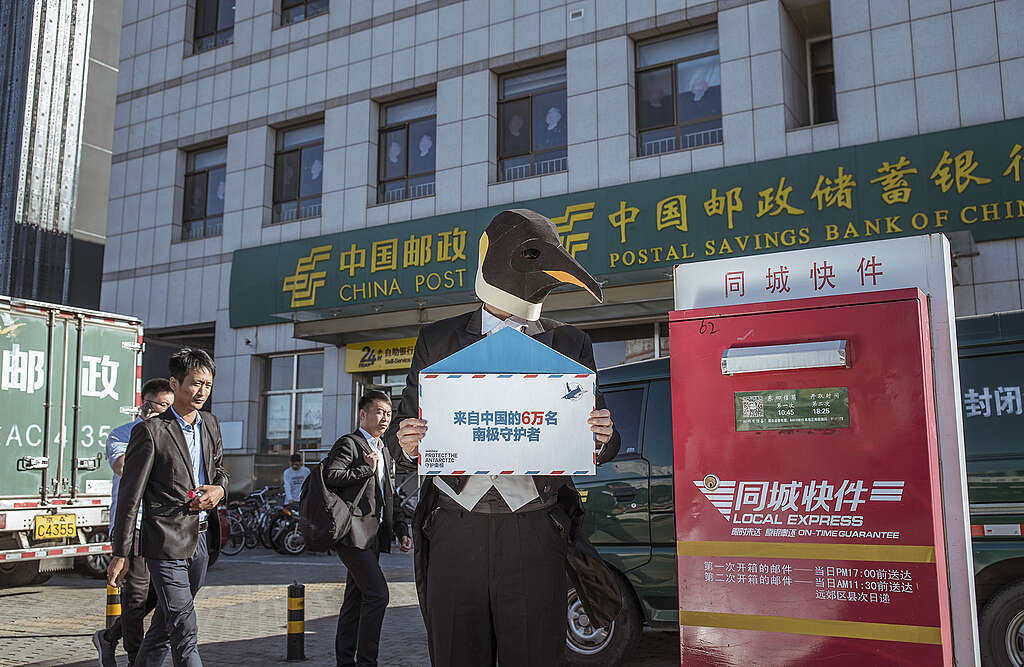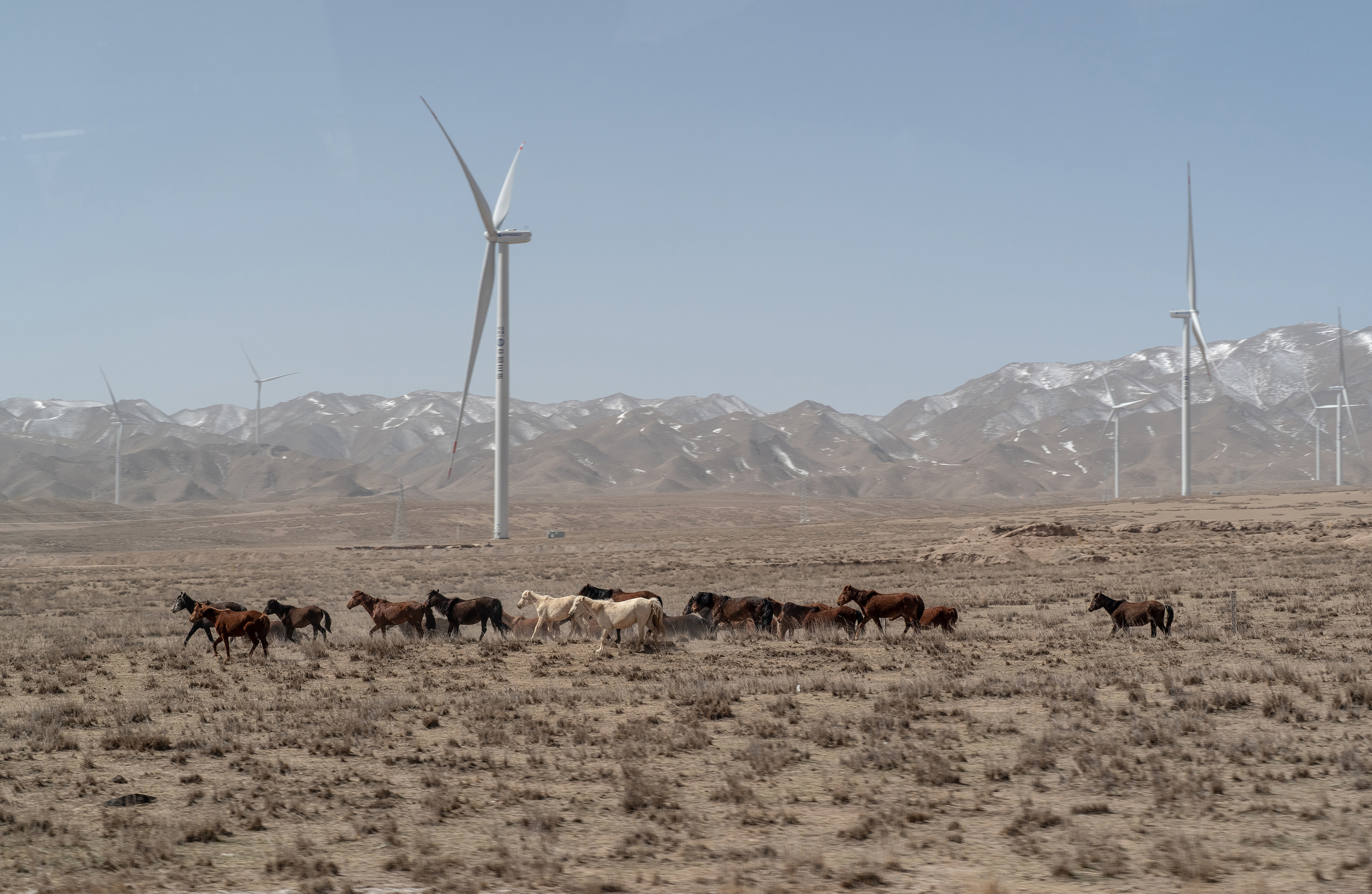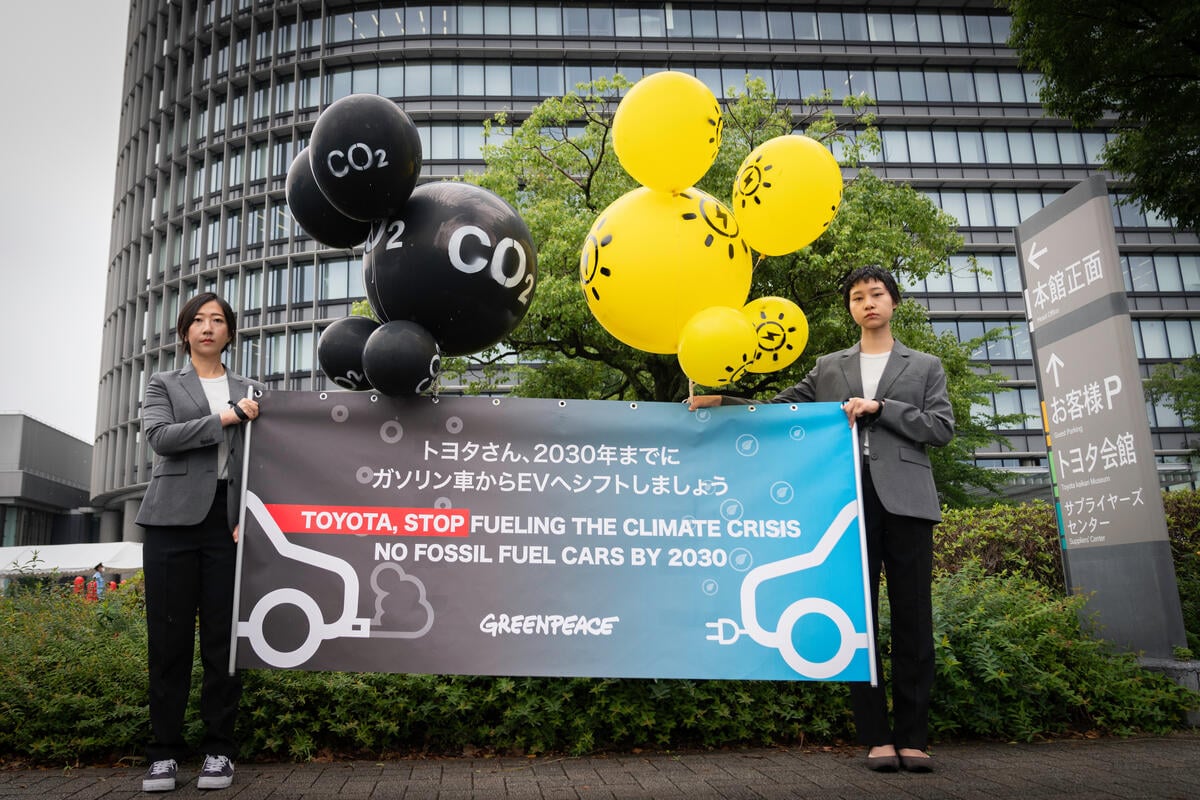From 2017 to 2022, China’s e-commerce carbon emissions surged from 18.37 million tons of CO2e to 55.65 million tons.

The majority of emissions in China’s e-commerce delivery industry comes from long distance trucking, an analysis by Greenpeace East Asia shows, while current low-carbon policies from local governments and the industry focus on the relatively oblique emissions from packaging and the “last mile” of deliveries.
Read the full analysis in Chinese here.
For eleven years straight, express delivery has grown by an annual 25%. In December 2022, China counted 845 million online shoppers. Online sales in 2022 reached 13.79 trillion CNY ($1.91 trillion USD).
But as e-commerce has exploded, so has its pollution. From 2017 to 2022, its carbon emissions surged from 18.37 million tons to 55.65 million tons. That’s over 200% in five years. And while overall carbon emissions in China’s transportation industry fell 3.1% in 2022, emissions in express delivery continued to grow (3.4%).
Devising a carbon accounting method with associates from Huazhong University of Science and Technology, Central South University of Forestry and Technology, and Zhejiang Yangtze River Delta Circular Economy Technology Research Institute, researchers at Greenpeace East Asia found that long distance trucking was the source of most carbon emissions from express delivery.
The environmental impact of packaging and the electrification of last-mile delivery are already the target of government campaigns such as the national “9917” project: aiming to bring the use of recycled packaging up to 90%, and meet targets of 10 million recyclable express delivery boxes and 700 million reused cardboard delivery boxes by the end of 2023. To address last-mile delivery efficiency, in March 2022, the Ministry of Transport, Ministry of Commerce and Ministry of Public Security, launched a pilot city project encouraging cities to become Green Freight Delivery Pilot Cities, offering grants to buy NEVs, develop new distribution nodes, improve delivery management and set up public awareness platforms.
But these segments of the industry are just the tip of the iceberg.
In the years between 2017 to 2022, long distance truck routes used by e-commerce (over 70% of express delivery pollution comes from e-commerce) accounted for over 50% of total carbon emissions in the industry. This figure rose from 59.2% in 2017 to 62.7% in 2022.
While aviation produces more emissions (1.46kg CO 2 ) per item, almost six times more than road transport, planes only carry 10% of express goods, and trucks carry up to 85%. So, although aviation in the express delivery industry produces 13.76 million tons of carbon (41.8% of emissions from express delivery transportation), trucking (producing 18.74 million tons of emissions or 56.9% of emissions from transportation) demands more attention. Trains, 13.5 times less polluting than planes, carry only 5% of e-commerce goods in China and produce the least carbon emissions at 420,000 tons. E-commerce has hit a period of slowing growth, adding pressure on delivery while cutting manufacturers’ margins.
This year, JD.com did not immediately release this year’s sales results from the June shopping bonanza it set up in 2010 and last year’s Double Eleven shopping festival saw depressed sales. This offers an opportunity for companies involved in logistics to improve efficiencies, exploring methods such as zero-emission vehicles and intermodal transport among other solutions.
Xia Yiwen, Beijing-based project lead for Greenpeace East Asia’s zero-carbon logistics project, said: “As express delivery is here to stay as a part of our everyday lives, renewed focus on the real sources of emissions in the supply chain is essential.” Greenpeace East Asia’s Beijing office has called for policymakers and industry leaders to address the core sources of carbon emissions in e-commerce delivery and support
targeted efforts to push the express industry to switch to a sustainable growth model.
To get in touch, you can contact Xia Yiwen at [email protected].



